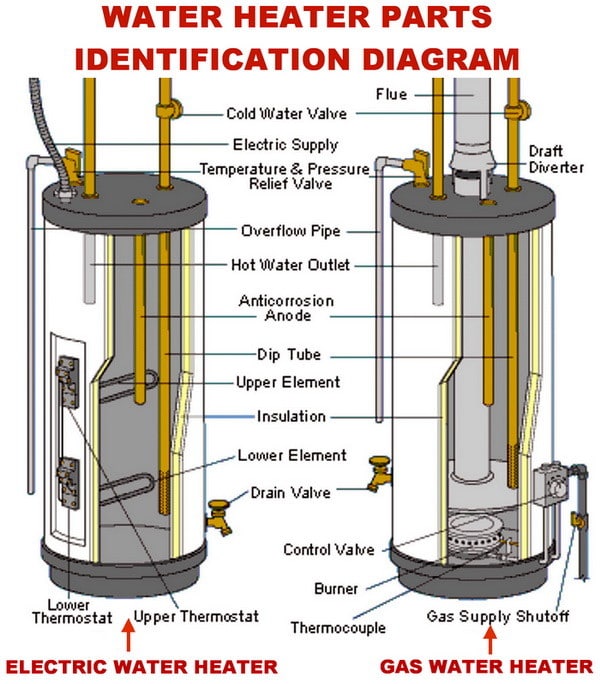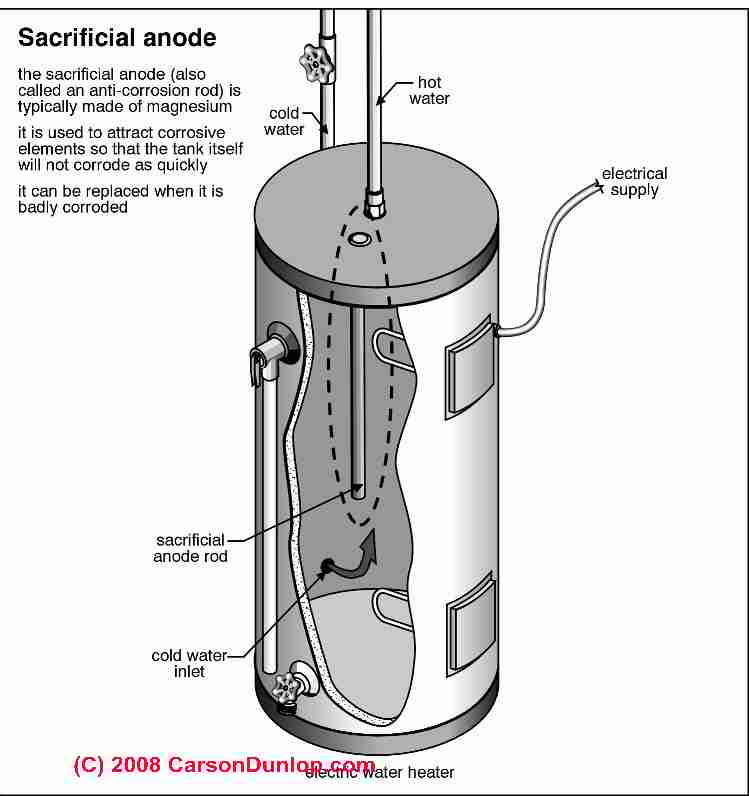Are you tired of taking cold showers? Are you experiencing issues with your electric water heater? If so, it's time to learn about the components of electric water heaters and how they work. Understanding the basics of your water heater can help you identify issues and get hot water flowing once again.
Electric water heaters are essential components of any household, providing hot water on demand for showers, laundry, and dishes. Despite their benefits, water heaters can experience issues due to faulty components. Water heaters use an array of different components to produce hot water. Some of the most critical components of electric water heaters include thermostats, heating elements, and tanks.
One of the most common issues with electric water heaters is with the heating elements. If your water isn't as hot as it used to be, or if you are running out of hot water too quickly, it could be due to a malfunctioning heating element. Other issues with electric water heaters can arise from faulty thermostats or tanks that need to be replaced.
The components of electric water heaters work together seamlessly to produce hot water for your household's needs. The thermostat regulates the temperature of the water, while the heating elements heat the water to the desired temperature. The tank holds the heated water until it's ready for use. Understanding how each component works can help you identify and troubleshoot issues with your electric water heater.
Understanding Thermostats
Thermostats are critical components of electric water heaters, regulating the temperature of the water to ensure it doesn't get too hot or too cold. If your water temperature is inconsistent, it's likely due to a malfunctioning thermostat. Thermostats can be manually adjusted to suit your household's needs.
My personal experience with thermostats involves adjusting the temperature to ensure that my water is hot enough for a nice shower. By understanding how thermostats function, I can tweak the temperature to ensure that my water is the perfect temperature for my family's needs.
Heating Elements
The heating element in your electric water heater is responsible for heating the water. There are usually two heating elements in an electric water heater: one for the top and one for the bottom of the tank. If your water isn't getting hot enough, or if you're running out of hot water quickly, it could be due to a malfunctioning heating element.
One issue I experienced with my water heater involved a malfunctioning heating element. After troubleshooting, I discovered that the heating element had burnt out and needed to be replaced. By identifying the issue, I was able to fix my water heater and get hot water flowing once again.
Tanks
The tank is where heated water is stored until it's ready for use. Water heater tanks are typically made from glass-lined steel and can hold anywhere from 20-80 gallons of water. If you notice leaks, rust, or corrosion on your tank, it's time to replace it.
One of my friends experienced an issue with rust on his water heater tank. By identifying the issue early on, he was able to replace the tank before it caused any significant damage to his water heater system.
Conclusion
Understanding the components of electric water heaters is essential for troubleshooting issues and ensuring your household has access to hot water. By educating yourself about the different components of electric water heaters, you can become empowered to identify and fix issues yourself. Remember to consult a professional if you are unsure about performing repairs on your own.
Question and Answer
Q: How often should I replace my electric water heater?
A: Electric water heaters typically last 8-12 years. However, it's a good idea to keep an eye on your water heater for any signs of wear and tear and replace it as needed.
Q: Can I replace the components of my electric water heater on my own?
A: While it's possible to replace components of your electric water heater on your own, it's essential to consult a professional if you're unsure about performing repairs.
Q: How can I increase the lifespan of my electric water heater?
A: Regular maintenance, such as flushing the tank and replacing broken components, can help extend the lifespan of your electric water heater.
Q: Should I adjust the temperature of my water heater?
A: Yes, adjusting the temperature of your water heater can help ensure you have hot water when you need it. However, it's essential to be cautious when adjusting the temperature to avoid scalding or burning.
Conclusion of Components of Electric Water Heater
Understanding the components of electric water heaters is essential for any homeowner. By familiarizing yourself with the different components, you can detect and fix issues before they escalate. Remember to consult a professional if you're unsure about performing repairs on your own. With proper maintenance and care, your electric water heater can provide your household with hot water for years to come.
Gallery
How To Change The Temperature On Your Electric Water Heater

Photo Credit by: bing.com / heater temperature heaters plumbing rheem repair removeandreplace identification thermostat pipe increasing tankless approximate increase homeandfamily drainage
Water Heater Timers
Photo Credit by: bing.com / heater water electric hot heating traditional parts plumbing element timer heaters system schematic energy size inspectapedia identify installation guide repair
Controls & Parts For Electric Hot Water Heaters Inspection, Diagnosis

Photo Credit by: bing.com / anode heater water hot tank electric piping rod diagram heaters solar gas plumbing sacrificial dip connections tube oil fired parts
Water Heater Making Noise? Here Is What To Check Yourself
Photo Credit by: bing.com / elektrische preventive elektrisk vandvarmer removeandreplace fungerer sådan vervangen noises banging ductwork leaking hvac verwarmingselement
Series - Water Heaters: Back To Basics, Part 1

Photo Credit by: bing.com / heaters